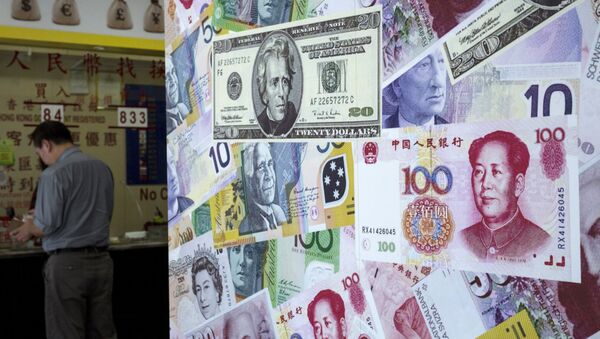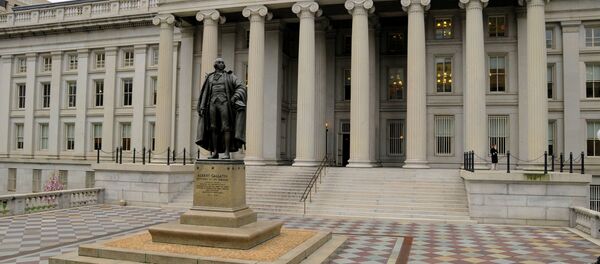Kristian Rouz — China's authorities announced on Thursday the recent capital outflows are ‘normal' given the current circumstances and promised a massive investment deregulation, thus easing international concern of the Chinese economy's health. Beijing said there is no reason to believe China is experiencing a panic capital outflow amidst the lingering disinvestment and foreign direct investment (FDI) shortage. Addressing the issue, the Communist authorities reiterated their commitment to bolstering the nation's investment appeal via a gradual investment liberalization and a repeal of the existing currency controls. Still, many investors believe the current capital flight situation might force Beijing to do quite the opposite, even imposing Tobin Tax as to stave off currency speculators.
The most important reason causing the outflows is that Chinese enterprises and individuals prefer to stockpile foreign currencies rather than the renminbi amidst the fears of further devaluations, while the Chinese-based companies are also investing large amounts of money abroad (in Africa and Latin America, in particular).
However, Beijing does not seem to be concerned, saying the capital outflows situation is ‘normal'. On Thursday, Wang Xiaoyi, deputy director of the State Administration of Foreign Exchange (SAFE), reassured investors and traders, easing international concern somewhat.
"Current changes (in investment capital movements) are normal, which should not be regarded as capital flight," Wang said.
Yet, SAFE is considering implementing possible limitations on renminbi trading to prevent the national currency from further weakening amidst market selloffs. Tobin tax is a possibility, Wang said, however, market participant believe it will hardly provide any positive developments in the long-term. Supporting the national currency may be useful in order to calm investors, however, unless the FX rate has bottomed out and macroeconomic fundamentals improved, an influx of investment capital is a less likely possibility.
Certain Communist Party leaders seem to acknowledge this, as, contrary to Wang's statements, some sources indicate Beijing is willing to "make the yuan convertible under the capital account."
At the next week's political meeting of the Communist Party of China, the nation's leaders are planning to adopt the so-called 13th five-year plan (as China is still largely a planned economy), which is likely to offer proposals of how to accelerate economic reform and further integration of China into the global financial and economic architecture. Sources say, within the planned large-scale financial liberalization China's authorities would open capital account by abolishing the existing limitations.
Once mainland China's capital account is open, the nation's investment appeal will improve significantly, providing the bourses in Shanghai and Shenzhen with a major boost to their capitalization and scale of operation. Coupled with the UK-backed inclusion of the renminbi in the IMF's reserve currencies basket, Beijing's liberalization measures might eventually transform China into an advanced economy like the US or the Eurozone or Japan.
There are certain challenges, however, as the cooling economy, low factory gate inflation and Beijing's gradual approach to reform might play against the best of the authorities' aspirations to reform. Still, proposals like streamlined admission of foreign non-bank financial companies to the Chinese market (securities trading firms, trusts, insurers and consultancies), support for high-tech and nuclear energy and remodeling of the entire economy to be driven by domestic market sound rather encouraging, potentially providing the staggering Chinese manufacturing with a long-overdue deregulative stimulus.


